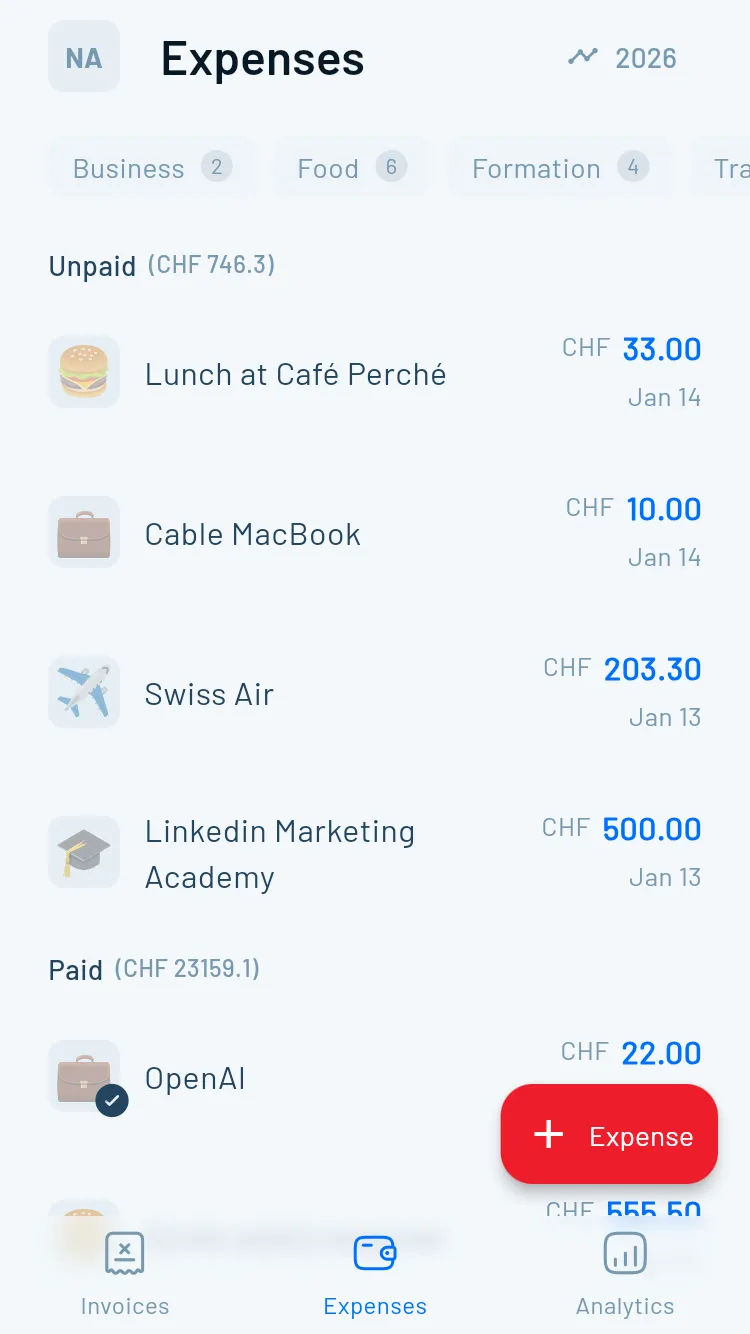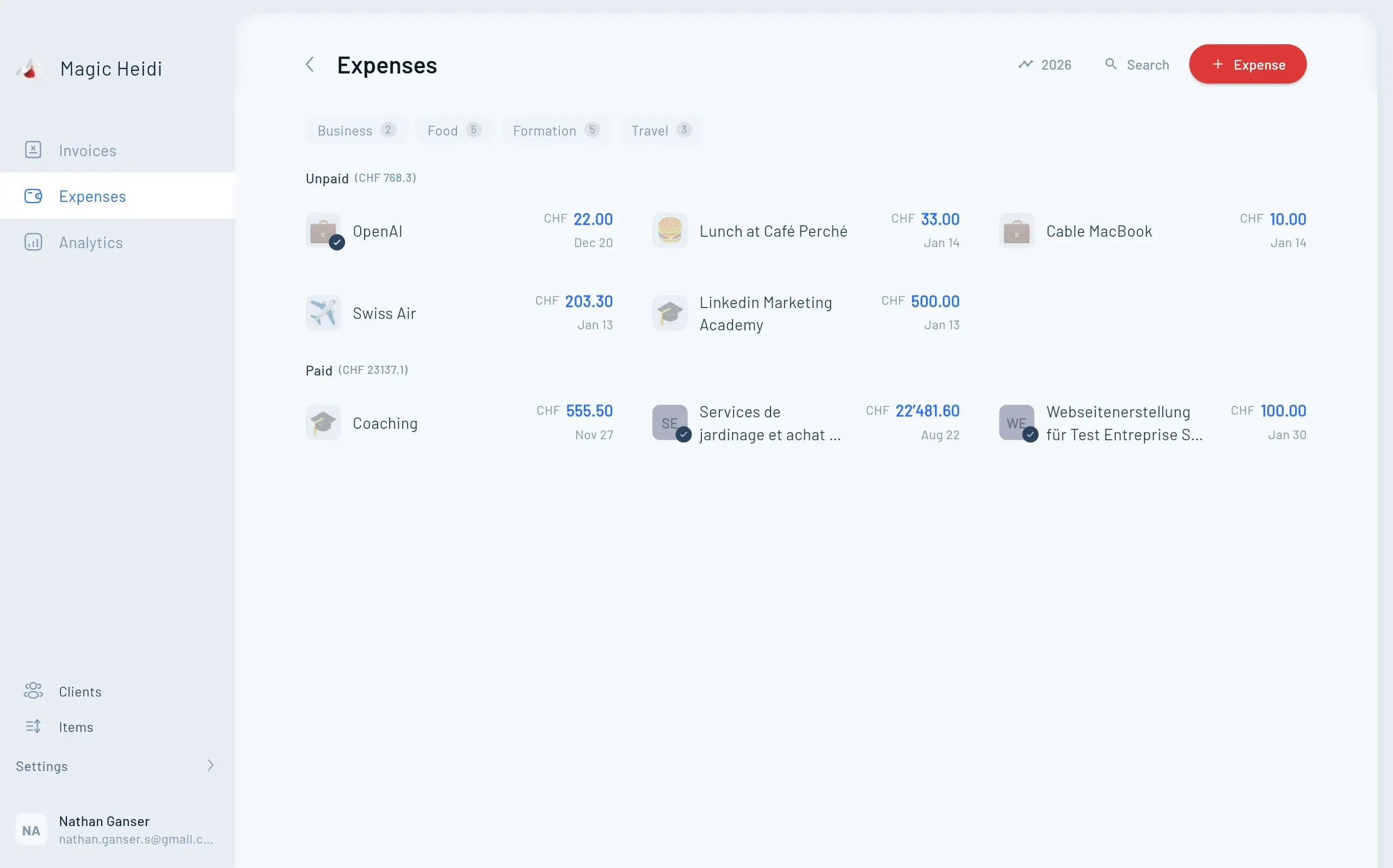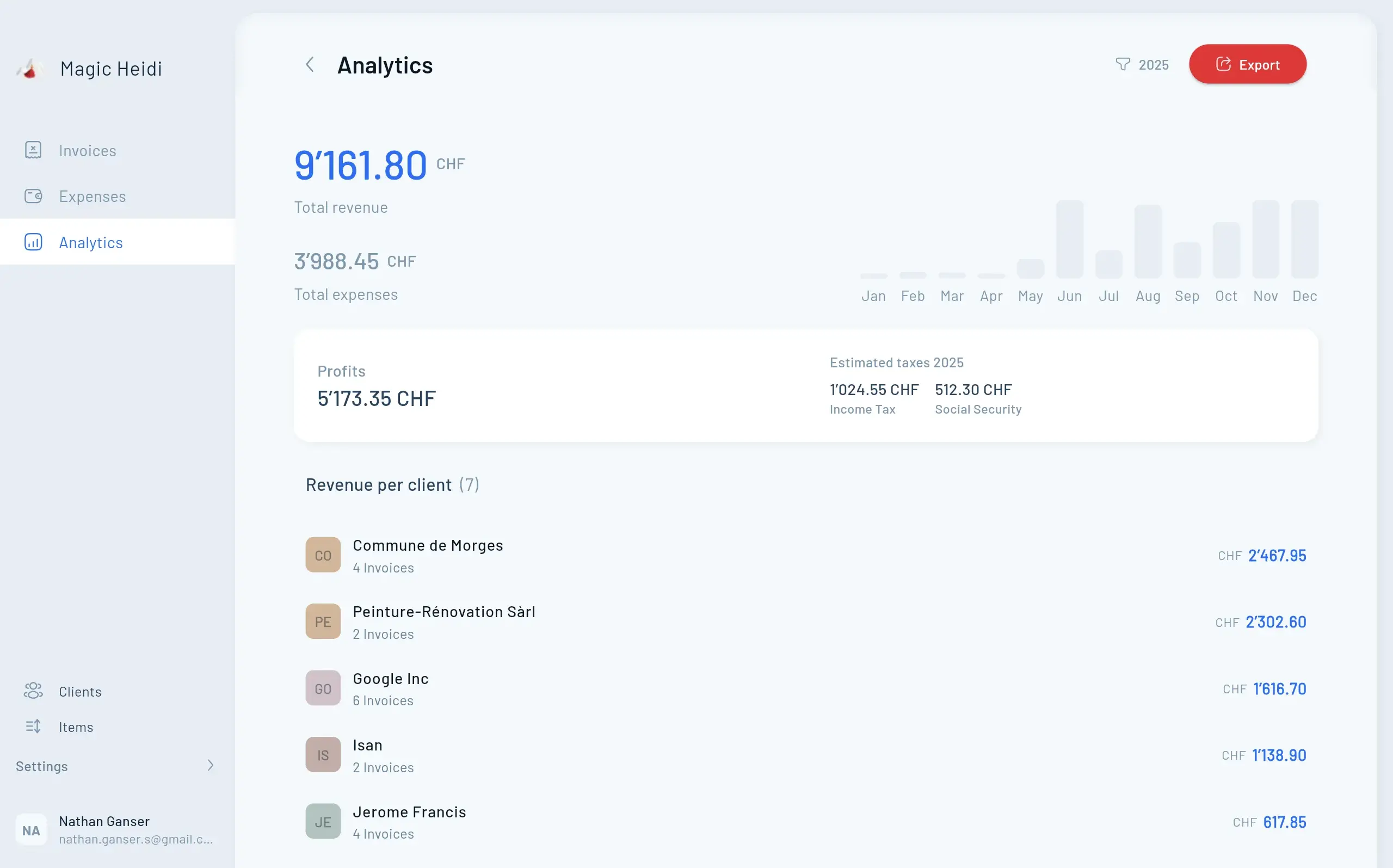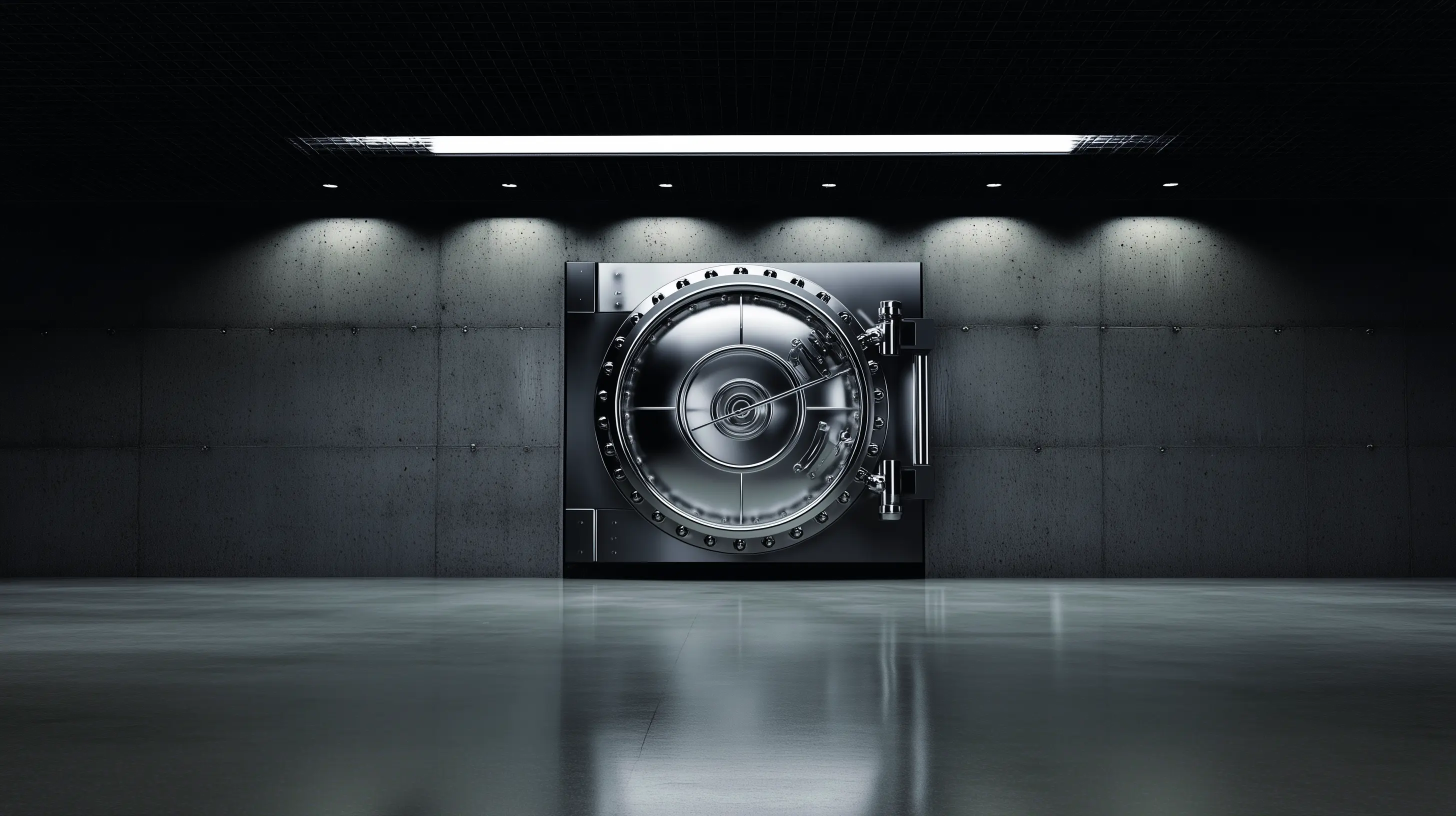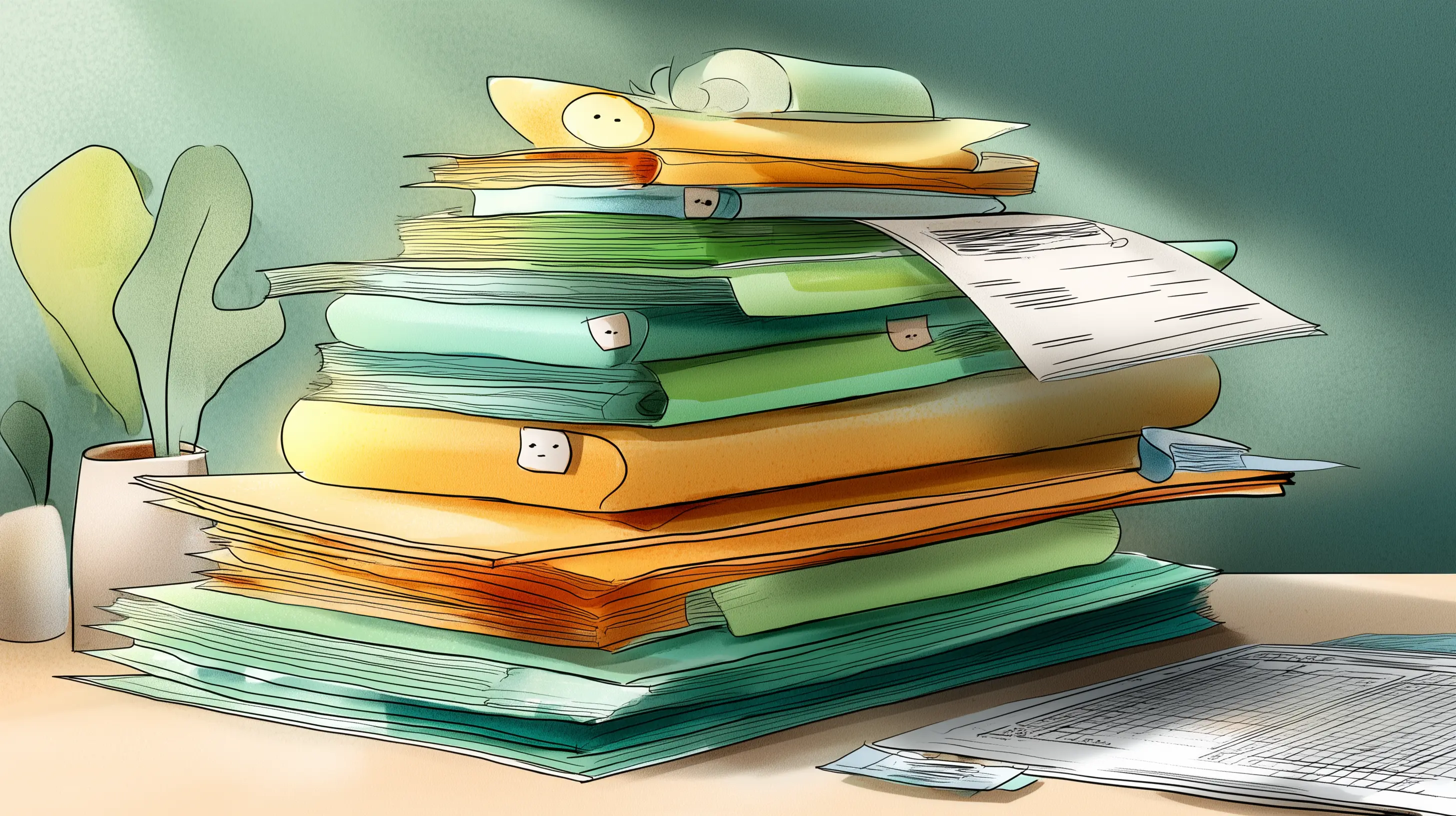Method 1 — Mileage Rate (simplest):
Track kilometers driven for business and claim the flat rate. For 10,000 business kilometers annually: CHF 7,500 deduction at the 2026 rate.
| Year | Rate per km |
|---|
| 2025 | CHF 0.70 |
| 2026+ | CHF 0.75 |
Method 2 — Actual Costs (higher deduction potential):
Deduct the business-use percentage of all vehicle costs:
- Fuel and charging costs
- Insurance premiums
- Maintenance, repairs, and tires
- Parking and motorway vignette
- Vehicle depreciation (40% declining balance per year)
- Leasing payments
Which method to choose? If your car costs exceed approximately CHF 0.75/km (common for newer or financed vehicles), the actual costs method saves more. Keep records for both in year one, then compare.
Without a contemporaneous logbook, your entire vehicle deduction may be disallowed. Record for every business trip:
- Date and time of trip
- Starting point and destination
- Kilometers driven (odometer readings)
- Client name or business purpose
Tip: If business use exceeds 50% of total kilometers, the vehicle qualifies as a business asset and you deduct a private-use share instead. The private share is calculated as 0.9% of the purchase price per month (minimum CHF 150/month).
- Public transportation: 100% deductible for business trips (GA, Halbtax for business travel, individual tickets)
- Air travel: Flights to conferences and client meetings fully deductible
- Accommodation: Hotel stays for business purposes
- Meals while traveling: CHF 15 per meal flat rate, or actual costs with receipts and business justification
Business meals are deductible, but documentation is critical:
What to record:
- Restaurant receipt with date, amount, and location
- Names of all attendees
- Business purpose of the meal
- Your relationship to the attendees (client, prospect, partner)
Standard deduction: CHF 15 per business meal if you don't have a detailed receipt. With full receipts and proper documentation, claim actual costs — though tax authorities may challenge excessive entertainment spending.
Important: Personal meals are never deductible. The expense must have a clear business purpose.
Outsourcing specialized tasks is fully deductible and often generates additional savings.
Fully deductible services:
- Accountants and tax advisors (typically CHF 2,000-4,000/year)
- Lawyers for contracts, disputes, and business matters
- Virtual assistants and administrative support
- Web designers, developers, and IT support
- Graphic designers and brand consultants
- Business consultants and coaches
Smart investment: Professional accounting services typically identify CHF 5,000+ in additional deductions — far exceeding their cost. If you're not working with an accountant, consider a one-time tax review at minimum. You can find Swiss fiduciaries who specialize in freelancer needs.
Deductible fees:
- Business bank account maintenance fees
- Transaction and payment processing fees (Stripe, PayPal, etc.)
- Credit card annual fees (business portion)
- Wire transfer and foreign exchange fees
- Interest on business loans and overdrafts
- Accounting software subscriptions (including Magic Heidi!)
Fully deductible as business expenses:
- Professional liability insurance (Berufshaftpflicht)
- Business property and equipment insurance
- Legal expenses insurance for business matters
- Business interruption insurance
Deductible as personal expenses (separate from business):
- Health insurance premiums (KVG/LAMal) — federal max: CHF 1,800 (single) / CHF 3,600 (married), higher without Pillar 3a
- Accident insurance supplement (required for self-employed: CHF 30-50/month extra on health insurance)
- Disability/loss of income insurance (Erwerbsunfähigkeitsversicherung)
Learn more about required insurance for Swiss freelancers.
